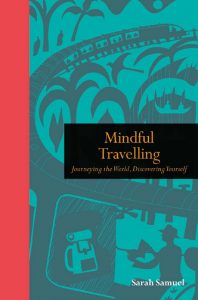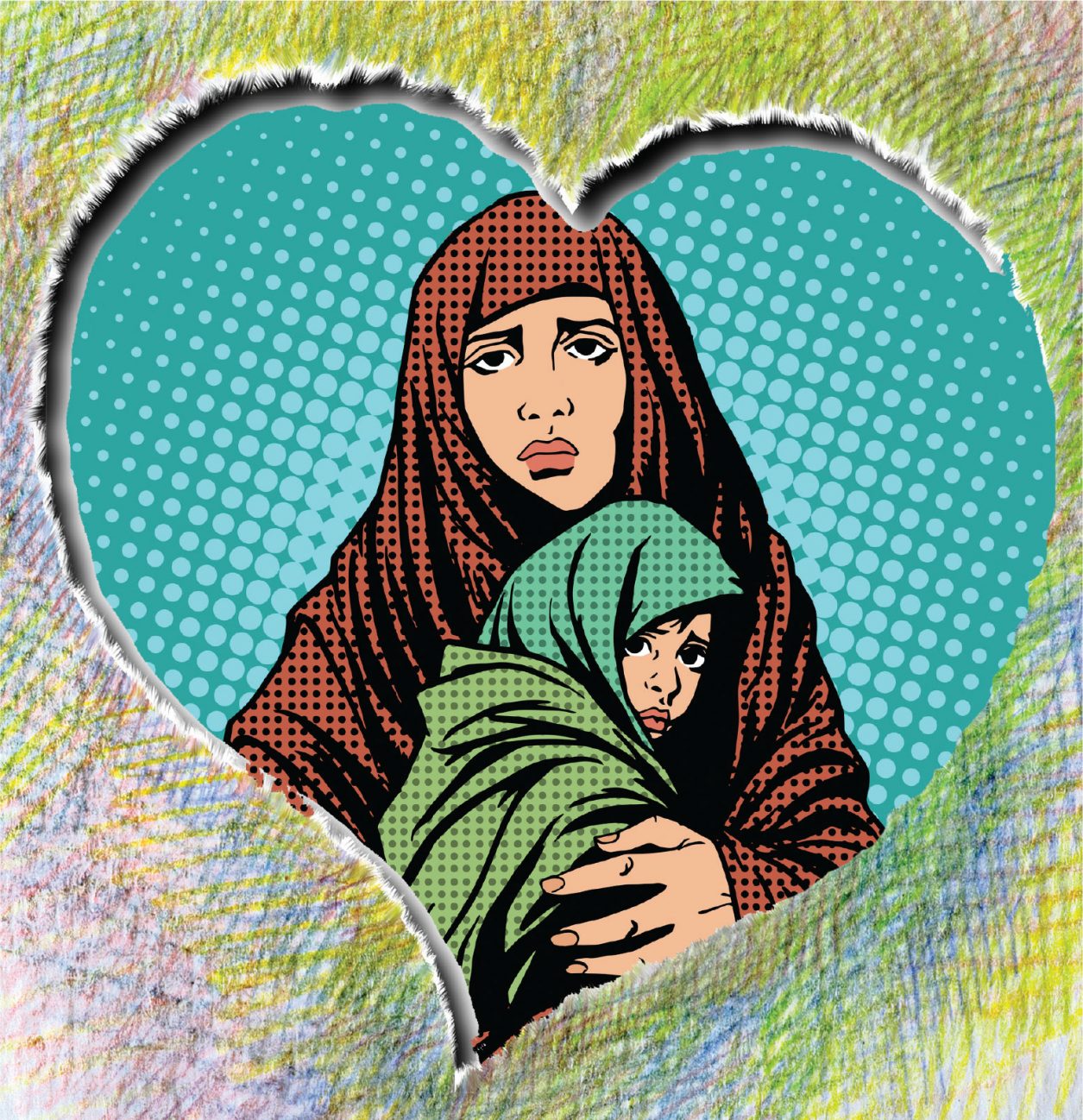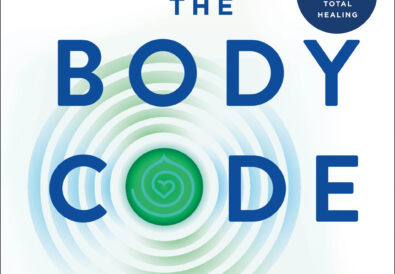Our planet can be a joyful and heartbreaking place all at once.
We live in a world of paradoxes, of darkness and light, of pain and joy and of love and hate. Embracing the paradoxes in the world, and in ourselves, is integral to mindfulness. You may not experience any of this first-hand, even if you travel widely, but if you are interested in the world around you, you will be aware of the seemingly insurmountable suffering that goes on.
The question of how to reconcile ourselves with these paradoxes is a complex one. In mindfulness we hold the intention to embrace all that is. But how can we embrace the suffering of the whole world? The answer lies in our ability to accept and embrace our own suffering, and the light and shadow that is within each one of us, and in doing so be able to act from compassion rather than pity or guilt.
We grow up in a world where we believe that in order to be happy we must not be sad. If you have ever felt angry and someone tries to make you laugh you may have felt resistance because you want to hold on to being angry, when actually we can feel angry and laugh at the same time. It is this simple belief that we cannot be both happy and sad at the same time that limits us from feeling fully alive. In travelling to places where there is poverty, I have felt both sadness and despair and happiness and connection, sometimes simultaneously.
The truth is, we can’t have light without dark or joy without pain. We may never know why the world is as it is, but in embracing the energy within us that seeks something deeper and more real, we begin to open our hearts to the paradoxes of life. Travel isn’t always about having nice experiences; it can be about having real experiences that have a lasting impact on us when we come home – on our priorities, perspective and place in the world. Sometimes we need to be shaken up in order to begin to make a difference.
Encountering Poverty
I’ve quite commonly heard people say to me that they wouldn’t want to travel to many countries in Asia or Africa because they couldn’t bear to see such poverty. Whilst it can be quite distressing to witness gaping differences in wealth, what we are trying to avoid is feeling guilty, sad or overwhelmed with upsetting emotions and not knowing what to do about it. Most of us, quite naturally and often unconsciously, try to avoid these “bad” feelings. By practicing mindfulness we consciously choose to embrace them, because ultimately they are within us wherever we choose to go, and it is only by accepting them that we can find peace in ourselves. We can choose to be shielded from seeing the poverty in many countries by travelling on escorted trips that minimize exposure to the normal world, focusing on luxury hotels, cultural shows, museums and expensive resorts. However, by hiding from our pain we also block our joy.
It can be disturbing to travel to places that have much greater levels of poverty than we are used to, witnessing child labor, women carrying babies whilst they work the fields, and all levels of disabled people trying to get by without any aids. There is nothing like coming face to face with such poverty to get us to begin to ask questions, such as, “How can we live in a world where many children have no access to education, where people die from treatable illnesses like malaria, and where almost half the population live in poverty?” I have always thought that if an alien were to visit our world and see the level of disparity in wealth, where one person starves whilst another gorges themselves on food, they would think us mad. Perhaps this is madness. In our cleverness at creating technologies that allow us to speak to someone halfway around the world, have we bypassed our consciousness?
What Can We Do?
We have many potential responses to the question of suffering, and each response is personal to the individual. We can take the stance that this is just how the world is and there’s not much we can do about it. We can say that we have problems too and question why we should sort out someone else’s. We can decide to travel responsibly, staying at places that give back to the local community, or we can donate to or volunteer at charities that help the injustices that we have seen.
It is commendable to want to do something, but we are still left with the question of how to deal with what we experience on an emotional level. Whilst activism can be very powerful—and it is important to act if that is what we feel drawn to doing—we also need to awaken our own consciousness, otherwise transformation will not hold. Unless we know how to be compassionate, non-judgemental and loving, transformation will not happen, no matter what the message is.
Acting from Compassion
If we visit a place with the attitude that we are better off than the people there and say things like, “It breaks my heart to see such poverty,” we can feel so bad about what we see that we can never escape from our emotions. All we take with us is pity, and all that the people there get from us is an image of someone who feels bad in their presence. Giving of ourselves is not about feeling sorry for or pitying another, but knowing that in our common humanity we are brothers and sisters. Whether we see global poverty first-hand or not, we know that it exists. Guilt that you are suffering and I am not, or that you are poor and I am not, will block compassion. Self-hatred, fear and anger can take over. We think that feeling bad goes handin- hand with being bad and this cuts us off from connection and being of true service in the world.
We have to start with ourselves. If we are at war with ourselves then how can we act with compassion to others? In accepting that we are full of paradoxes, just as the world is, that in each one of us is anger and love, sadness and joy, we open to our own suffering. If we do not take a mindful approach with an acceptance of what is before we react, then when we sense the suffering in others we will either push our feelings away or be overwhelmed by them. Compassion is when we experience negative emotions, such as sadness and grief, but there is enough space not to be overwhelmed.
Joy Is Everywhere
Although many people in our world struggle to make ends meet, we can’t assume they are any less happy than we are. In the developed world, with all the “stuff” we have and think we need to have, there is an epidemic of loneliness. Joy is not born from having things; joy is a result of connection. My experience of places where people materially have less, is that there is sometimes more joy. I volunteered for an environmental charity in Costa Rica because I believed that I was going to help those less fortunate than me. What happened was the reverse. I realized that in many ways they were more fortunate than me. Never before had I experienced such warm hospitality, danced so much and been welcomed by so many open-hearted people.
Reprinted with permission from Leaping Hare Press, an imprint of The Quarto Group, from Mindful Travelling (September 2019),© 2019 by Sarah Samuel. Design and layout © 2019 Quarto Publishing plc.

 Sarah Samuel is a mindful traveller who has explored many different spiritual traditions, practices and teachings. She has been on silent meditation retreats In Europe, walked pilgrimage routes in Japan, and experienced Buddhism in Northern India and Tibet. Sarah integrates mindfulness into her daily life through meditation, and the courses and workshops she runs through her business, Potent Creatives, www.potentcreatives. org. She is also the author of Mindful Crafting, 2018.
Sarah Samuel is a mindful traveller who has explored many different spiritual traditions, practices and teachings. She has been on silent meditation retreats In Europe, walked pilgrimage routes in Japan, and experienced Buddhism in Northern India and Tibet. Sarah integrates mindfulness into her daily life through meditation, and the courses and workshops she runs through her business, Potent Creatives, www.potentcreatives. org. She is also the author of Mindful Crafting, 2018.




















